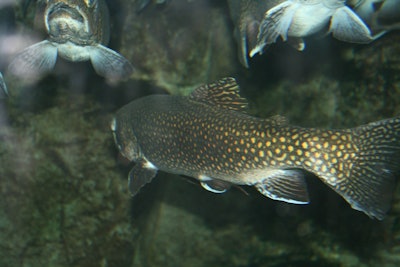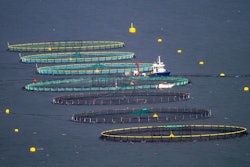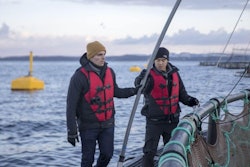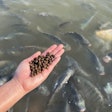
The Global Salmon Initiative (GSI) in collaboration with the World Wildlife Fund (WWF) has introduced a pioneering Environmental, Social, and Governance (ESG) risk assessment tool tailored for the feed ingredient sector. This tool is designed to enhance supply chain transparency and facilitate the identification and mitigation of potential ESG risks.
Developed over three years with inputs from GSI members, WWF, and feed industry leaders, the ESG tool establishes a unified framework for companies in salmon farming—and potentially other animal protein sectors—to evaluate their feed supply chains comprehensively. It addresses a range of concerns, from biodiversity and climate impact to human rights and corporate governance.
Daniel Miller of WWF emphasized the tool's role in proactively managing sustainability challenges, which are often exacerbated by insufficient data in feed-ingredient supply chains. By promoting a wide-ranging review of supply chains, the tool not only helps in risk mitigation but also enables more strategic decision-making by companies.
Tor Eirik Homme from Grieg Seafood highlighted the need for greater supply chain transparency and traceability. The standardized queries facilitated by the new tool are expected to streamline interactions with suppliers, fostering quicker advancements in sustainable feed ingredient sourcing.
The tool's potential extends beyond aquaculture, with anticipated benefits for the broader animal protein production industry, including pet food manufacturers. The GSI aims to partner with other WWF affiliates to broaden the tool’s application.
Jorge Diaz Salinas from Skretting endorsed the ESG tool for its capacity to illuminate both known and unknown facets of ingredient impacts, thereby enhancing sourcing transparency and overall industry performance.
The Aquaculture Stewardship Council (ASC) has also recognized the tool's utility and plans to integrate it into their ASC Feed Standard certification process as a due diligence mechanism.
WWF, in conjunction with GSI and Grieg Seafood, has also published a business case, “Feed of the Future: Transparent and Traceable,” detailing feed production challenges, the tool's development process, and its practical application by Grieg Seafood.
Designed to evolve through user feedback and annual updates, the tool's confidentiality protocols ensure that sensitive data is exclusively shared between feed suppliers and farming companies. The ultimate objective is to leverage this tool to foster innovation, drive sustainability in feed sourcing, and maintain the profile of farmed salmon as a viable and sustainable food source.
For a comprehensive understanding of the tool and its objectives, interested parties are referred to the WWF business case and the article in the World Aquaculture Society Magazine's March 2024 edition.










